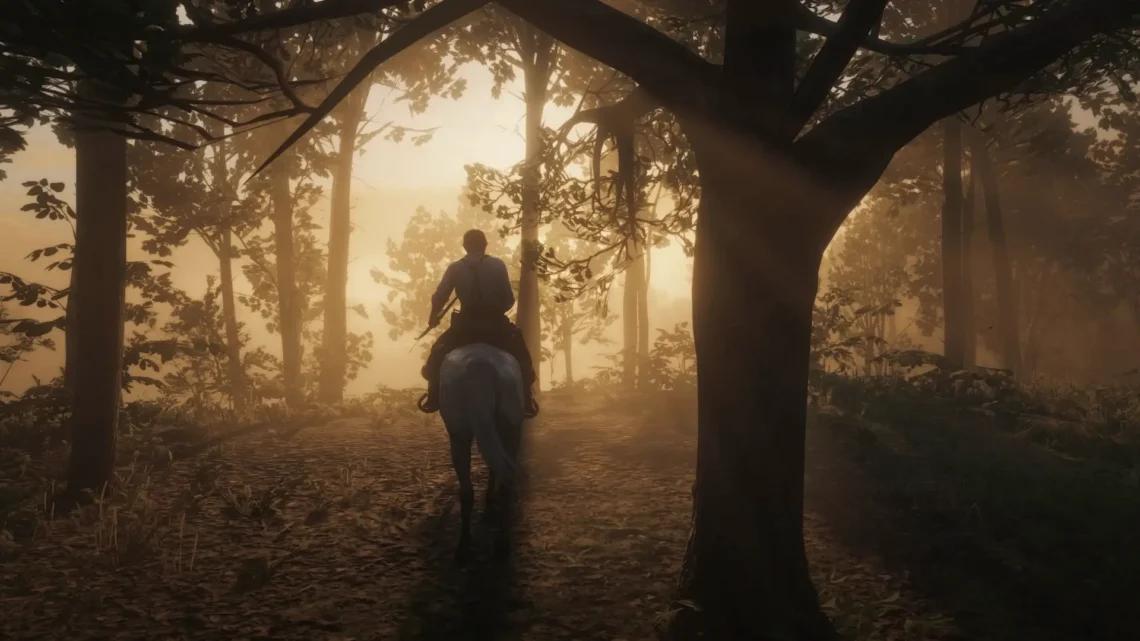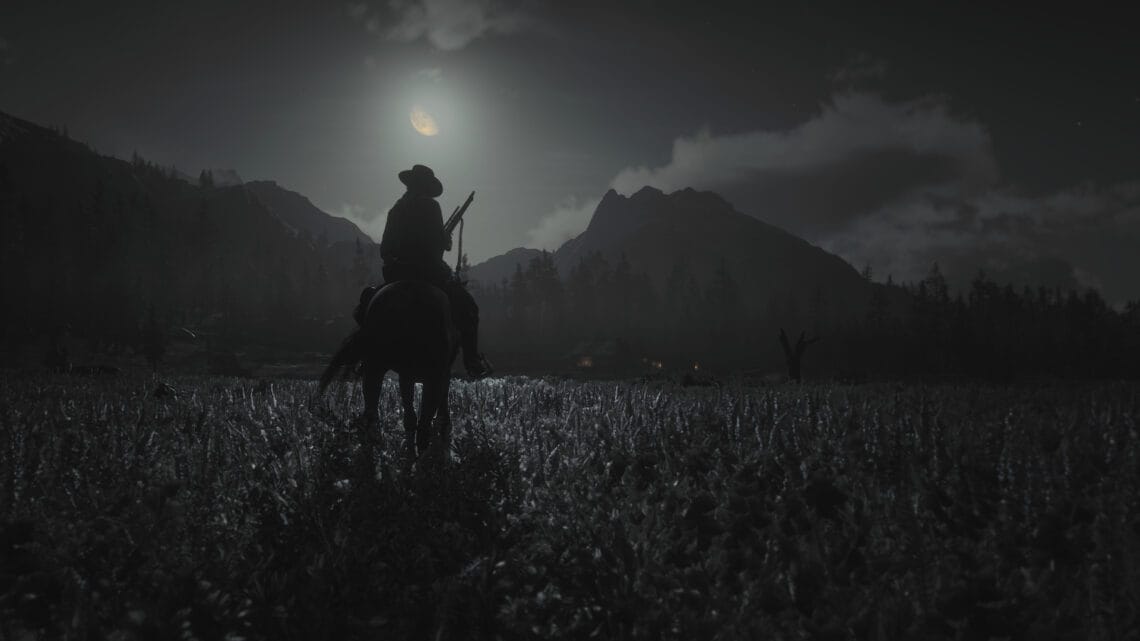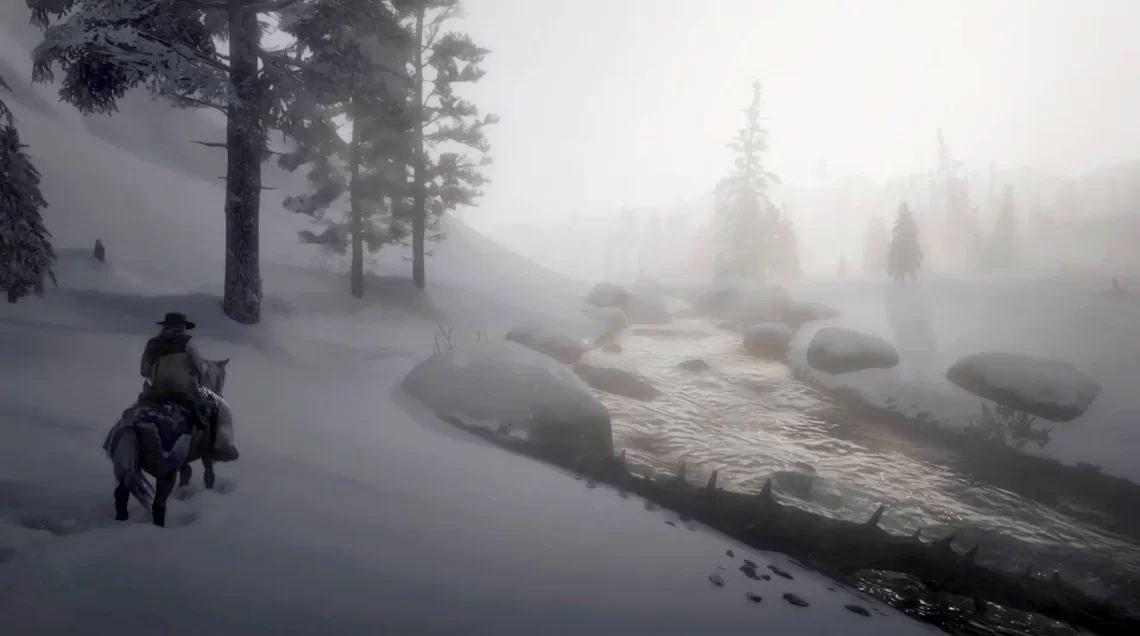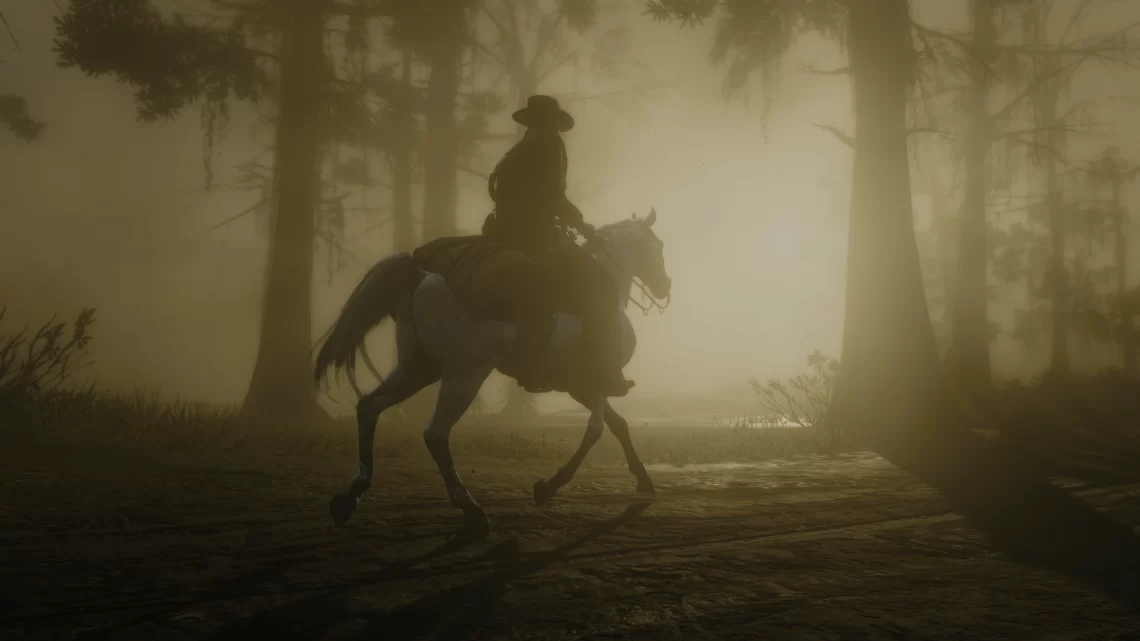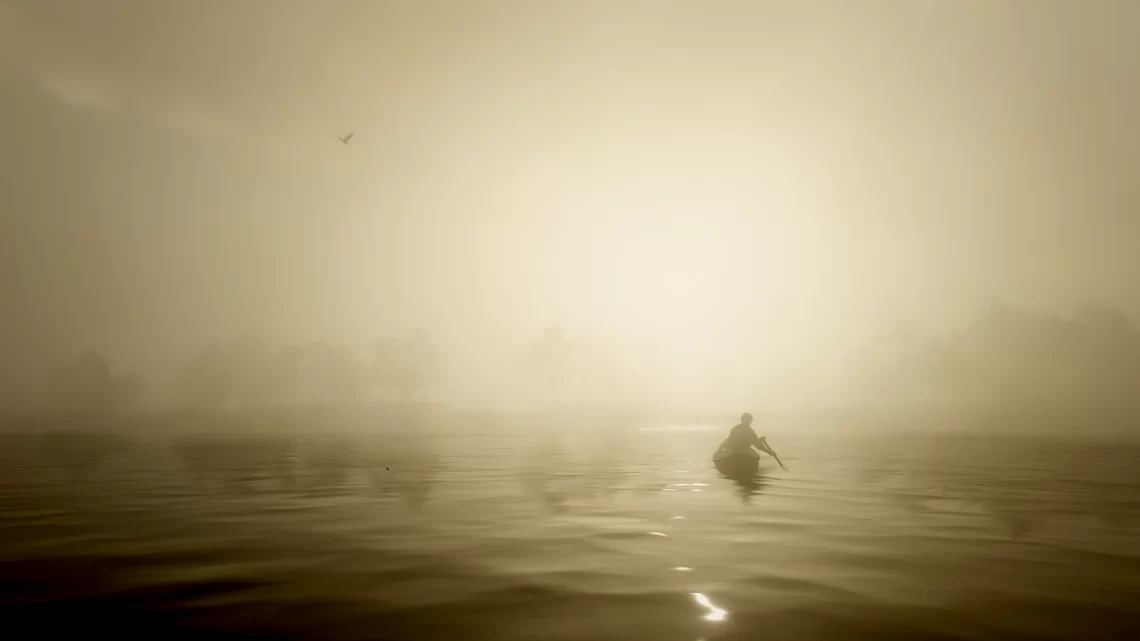Red Dead Redemption 2 is a paradox: despite justifiably being called one of the greatest games ever made, as a work of narrative art, it falls short of greatness. In aspects — the standout performances, the rendition of characters’ facial expressions, the golden choruses of the sunsets — it is superb. However, despite the story's powerful effects, RDR2's reputation as a superlative work is undeserved. Some of its formal problems are, perhaps, inevitable in a narrative form as nascent as the video game. Plot holes break the fabric of the story here and there.
Warlock — an 1958 Western by American novelist Oakley Hall — influenced Red Dead Redemption 2 deeply. Its complex plot is loosely based on iconic elements of the incidents now known as the Gunfight at the O.K. Corral and the Johnson County War. Like RDR2 itself, it reimagines and reworks its source material. Tombstone, Arizona, becomes Warlock, a frontier town plagued by random acts of violence: a group of men associated with local rancher Abe McQuown shoot the place up, rustle cattle, and rob stagecoaches. Because the state governor, General Peach, is senile, he hasn't issued Warlock a town patent, which means the townspeople have no authority to hire a…
Butcher’s Crossing is an 1960 novel by John Williams about a young man named (hilariously) William Andrews, who leaves Harvard in the 1870s to go West and experience the parts of the country untouched by European colonizers. In part, he’s inspired to do so by Ralph Waldo Emerson, the most prominent figure of the Transcendentalist movement. Another leader in the literary movement, Henry David Thoreau, is part of the basis for the character Evelyn Miller.
When considering race and anti-Black racism, Black perspectives are the most vital. That said, too often, we act as though being white is an automatic, default, or neutral position instead of considering the precise ways in which racism distorts white perspectives and beliefs. RDR2's portrayal of the white perspective is unconsidered and obscures historical realities. Arthur's demonstrable ignorance of white peoples’ prevalent attitudes in “Preaching Forgiveness as He Went” and “No Good Deed” denies the realities of the time and is totally unbelievable: in no way were white supremacist acts of violence, let alone beliefs, confined to the South.
An unfortunate feature of American storytelling is the “anti-racist” text that is, itself, racist. These pieces ostensibly speak against racism, but the authors haven't done the difficult work of confronting their own false and negative beliefs about the people they're writing about. As a result, they uphold or create harmful stereotypes, like the white savior or the Uncle Tom. One such text is Quentin Tarantino's film Django Unchained, which probably gave RDR2's writing team the idea for a Western set in the South. Having chosen that questionable inspiration, they chose another with similar flaws: Adventures of Huckleberry Finn by Mark Twain.
